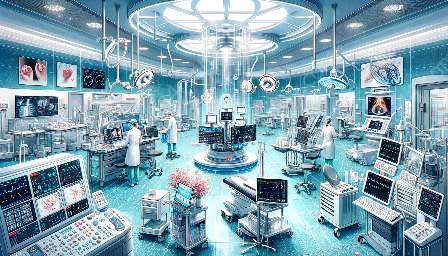Neurobiology is the study of the nervous system and how it regulates various bodily functions. It encompasses a wide range of disciplines, including anatomy, physiology, and medical devices.
Understanding neurobiology is essential for understanding the complexities of the human nervous system, exploring the intricate structure and function of neurons, and unraveling the mysteries of neurological diseases and disorders.
The Basics of Neurobiology
At its core, neurobiology delves into the structure, function, and development of the nervous system. This includes investigating the interactions between neurons, neurotransmitters, and other signaling molecules, as well as examining the brain, spinal cord, and peripheral nerves.
Neurobiologists seek to understand how the nervous system processes information, generates behavior, and is affected by various physiological and pathological conditions.
Neurobiology and Anatomy
Anatomy plays a crucial role in neurobiology, providing the foundation for understanding the physical structure of the nervous system. It involves studying the organization of the brain, spinal cord, and peripheral nerves, as well as the intricate network of neurons and glial cells that form the basis of neurological function.
Through anatomical investigations, researchers can map the pathways and connections within the nervous system, uncovering the intricate web of neural circuits that underpin sensory perception, motor control, and cognitive processes.
Neurobiology and Physiology
Physiology complements neurobiology by exploring the functions of the nervous system at various levels, ranging from cellular and molecular processes to the integration of neural circuits and systems. It examines how neurons communicate with each other, how sensory information is processed, and how motor commands are transmitted to muscles and glands.
Additionally, physiological studies delve into the mechanisms underlying neurological phenomena such as learning, memory, and homeostasis, shedding light on the intricate interplay between the nervous system and other organ systems.
Neurobiology and Medical Devices
Advances in medical devices have revolutionized the field of neurobiology, providing researchers and clinicians with powerful tools for studying and treating neurological disorders. From neuroimaging techniques such as MRI and CT scans to neural prostheses and deep brain stimulation devices, medical technology has greatly expanded our capabilities to explore the intricacies of the nervous system.
These devices enable neurobiologists to visualize brain structures, monitor neural activity, and intervene in pathological conditions, offering new opportunities for understanding and manipulating the intricacies of neurobiology.
Conclusion
Neurobiology stands at the intersection of anatomy, physiology, and medical devices, offering a comprehensive understanding of the human nervous system and its functions. By delving into the intricate structure, complex functions, and technological advancements in the field, we gain insights into the fundamental aspects of neurobiology and its relevance to broader medical and scientific domains.


